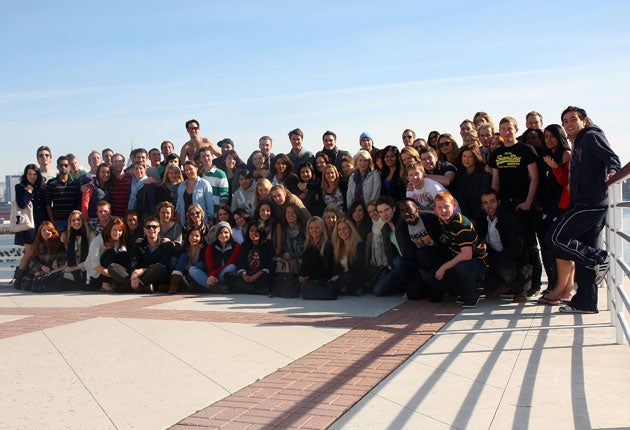Work placements in the US are no longer an American dream

With student debt at an all-time high and companies continuing to tighten their belts, prospects can seem bleak for the latest crop of university leavers. Work experience has long been a staple path to securing permanent employment, and it is undeniable that in a straightened economy internships can provide a vital foothold on the increasingly vertiginous rockface of the corporate job market.
For most young graduates, however, working for free is simply not an option. So, if the folks aren’t already millionaires, how best can the aspiring young global capitalist get that all-important edge over the competition? Since 1961, when the US State Department created the J exchange visa to permit international students and recent graduates to undertake year-long work placements, one increasingly popular option is pursuing a paid internship across the pond.
Historically, there have been two avenues open for those wishing to experience life in the US – a choice between study and work. Recently though, a third option has emerged: combining them both on one of the cultural exchange enterprises that aim to bridge the gap between companies needing willing hands and ambitious graduates.
The Mountbatten Institute offers one such programme, presenting 300 students per year with a bite of life in the Big Apple whilst undertaking a paid internship and studying towards an internationally-recognised business qualification (either an MBA or the Postgraduate Certificate in International Business Practice.)
Vikki Hedges, Mountbatten’s Admissions Director, says that the organisation is able to arrange placements in a spectrum of corporations and services, from the likes of leading multinational investment banks such as UBS, RBS and Citi to the British Consul-General and global charities such as the Breast Cancer Research Foundation – though the majority are in financial services. Within this, she adds, options include positions in office management and compliance up to more expansive roles in business analysis, marketing and paralegal work.
Students are drawn from all over the world, but the majority of the annual 300-strong intakes on the New York wing of the programme are from the UK, though the company also runs a complementary London work exchange for US natives.
One of the veterans of the programme is Philip White, who travelled to New York in September 2009 as a history graduate and landed a position as a marketing intern at Citibank. In common with many recent applicants, he saw it as an investment in his career as well as a chance to experience life abroad.
“The American ethos of internship can be quite broad, so it’s an opportunity to embrace added responsibilities and learn from the exposure you get to the practices of top-calibre business,” he explains. In terms of direct benefit to the participant, White believes that “the internship can provide a strong route into a permanent job back home – even if it doesn’t, it’s a chance to get a leading brand on your CV and, if you do well, a very credible reference for future applications.”
Perhaps more importantly, programmes such as these are a chance for young graduates to live and work in one of the most vital and cosmopolitan cities on earth for a fraction of the normal cost. Average apartment rents in New York sit at $1,600 (£990) per month, with additional utilities at $189 (£117). Mountbatten students on the PGC programme pay $9,681 (£6,100) for their tuition, rent and bills for the year, while the MBA is a meatier £22,475. Participants also receive a stipend of around $1000 (£615) per month for living expenses – including a 13th month ‘bonus’ payment if they successfully complete all aspects of the programme.
The programme also encourages its interns to get involved in extracurricular community activities and has a relationship with New York Cares, a prominent volunteering hub supplying helping hands for projects from football coaching to helping with literacy or working at an animal shelter. MBA students follow up their year in New York with close to four months in Bangkok, researching and writing dissertations on topics that have included medical tourism and the work of aid agencies in the Asia-Pacific region.
Mountbatten’s Academic Dean, Dr. Sonia El Kahal Maclean states that the principal aim of this transcontinental placement strategy is to ensure that “participants get global exposure to business culture, and can see how practice varies around the world, how concepts that they’ve studied apply within different environments.”
Even without the benefit of a qualification, it seems that former interns reap rewards. Lauren Welch, marketing director of the prestigious Fulbright Commission, sums up the general benefits: “A survey of UK employers indicated that 65 per cent favour applicants with overseas work experience.”
With statistics like that, a transatlantic adventure certainly beats a return to the parental nest.
For more information, visit www.mountbatten.org
Join our commenting forum
Join thought-provoking conversations, follow other Independent readers and see their replies
Comments
Bookmark popover
Removed from bookmarks